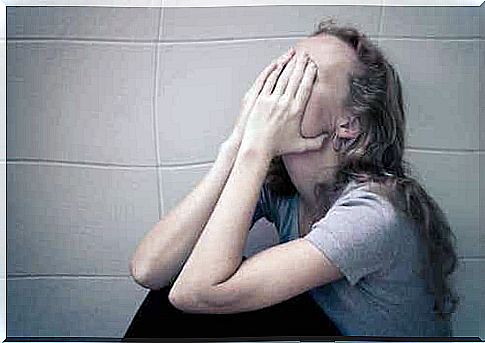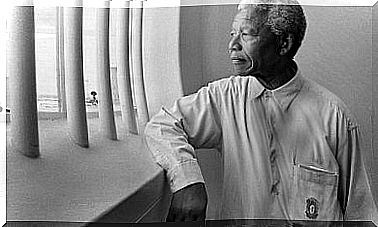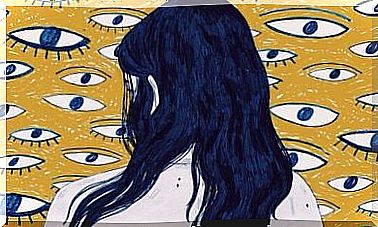Dialectical Behavioral Therapy

Marsha Linehan’s Dialectical Behavioral Therapy (DBT) was designed to treat borderline personality disorder (BPD ) in adults, although today it has also been shown to be effective for treating other mental health problems.
Dialectical Behavioral Therapy (DBT) improves extreme emotional instability (emotional dysregulation), which is an inability to manage intense emotions. This dysregulation leads to impulsive and self-destructive behaviors typical of borderline personality disorder (BPD).
In the following lines we will talk about the characteristics of this therapy, its objectives (functions), its phases and its effects.
What is Dialectical Behavior Therapy?
Dialectical Behavioral Therapy (DBT) is a model of psychotherapy, created in the late 1970s by Dr. Marsha Linehan, which led to a specific type of psychological intervention. It arose out of Linehan and her colleagues’ dissatisfaction with the results obtained by applying cognitive behavioral therapy on “multiproblematic patients”.
It was first developed for the treatment of people with suicidal behavior and borderline personality disorder (BPD). Over time, it has been shown to be useful for treating other personality disorders and mental health disorders in general.

Characteristics of Dialectical Behavioral Therapy
This therapy is based on behavior modification techniques typical of the cognitive-behavioral paradigm and on mindfulness strategies. It is focused on treating the symptoms of impulsivity and emotional instability that can lead to suicide attempts.
It combines individual and group therapy and, according to Behavioral Tech (2017), focuses on people’s ability to learn and use new skills to develop a life worth living.
Objectives and functions
The five main goals or functions of dialectical behavior therapy are:
- Increase personal skills (such as emotional self-regulation) by focusing on the “here and now” or interpersonal skills.
- Extend these skills to other contexts (i.e. daily life).
- Improve motivation and reduce dysfunctional behaviors.
- Improving and maintaining the therapist’s skills and motivations, which are continually challenged by the challenging attitudes of individuals with borderline personality disorder (BPD).
- Structuring the environment, so that what surrounds the patient contributes to the achievement of his therapeutic goals and becomes a reinforcement of adaptive behaviors.
Phases
In Dialectical Behavioral Therapy, there is a pretreatment phase and three actual treatment phases. Pretreatment focuses on the patient’s initial orientation towards therapy.
In the pre-treatment phase, the therapeutic relationship, the commitments and the objectives to be achieved are also established. In the following phases, different areas and skills of the person are worked on.
Phase 1
The first phase aims to increase self-awareness and the ability to tolerate discomfort, the regulation of emotions and personal relationships, the control and management of impulsive behaviors, etc.
In this phase, all variables and behaviors that can influence the patient are taken into consideration and accepted. Strategies are used aimed at obtaining self-acceptance on the one hand and behavioral change on the other. Usually this phase lasts 1 year.
Phase 2
In the second phase, action is taken on the stress or symptoms due to post-traumatic stress disorder (PTSD), which are very frequent in this type of patient. This phase does not have a fixed duration.
Phase 3
The third phase is aimed at the “reconstruction” of the patient and also at the construction of a realistic, positive and self-validating self- concept, which contributes to the search for important life goals.
In addition, the patient is encouraged to learn how to validate their experiences. As in the previous stage, it does not have a specific duration.

Effects
The positive effects of dialectical behavioral therapy have been shown for disorders such as borderline personality disorder , other personality disorders, eating disorders, mood disorders, substance abuse, anxiety disorders, and post-traumatic stress disorder.
It is an effective therapy to reduce behaviors related to poor impulse control (improves the management of impulsivity) and also improves the tolerance to discomfort and the management of intense emotions.
Therefore, its effects are specifically aimed at reducing discomfort. It also improves emotional self-regulation, affective stability, and reduces self-harm or suicidal behaviors.
The skills on which dialectical behavioral therapy operates
Today, dialectical behavioral therapy is used to treat various ailments in hospital and outpatient settings and in both public and private contexts. It is a type of therapy that works on four types of skills: basic awareness skills, interpersonal effectiveness, emotion regulation, and discomfort tolerance.
Improving these skills in individuals with borderline personality disorder (BPD) or other psychological disorders is helpful. With this therapy, individual or group work can be carried out and patients have at their disposal a series of exercises and practical activities proposed by the therapist.
In addition to this, they are psycho-educational modules that allow patients to better understand and manage their disorder and discomfort.









